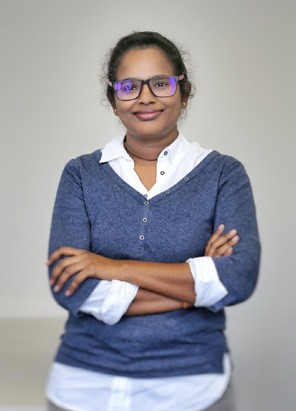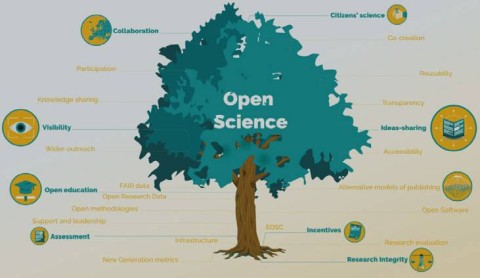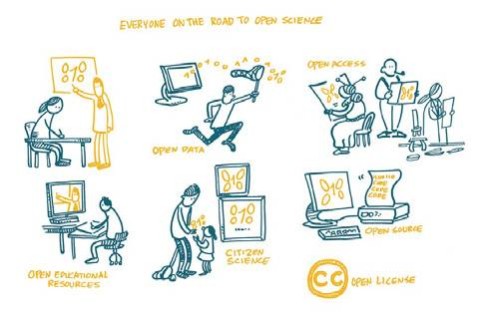Special Issue: Open Science in its many forms - The Open Science journey: Learning to transform ideas into actionable projects
Newsletter

Got an interesting idea to strengthen your field of research or make science impactful for all? But not sure how to turn it into action? Start with Open Science—a toolkit to bring your vision to life. Learn how open access, collaboration, and innovation can transform your vision into a project that benefits both your research community and society.
Bionote
Shanmugapriya Periyannan, a postdoctoral fellow at Universität Siegen, Germany, is a first-generation PhD holder in her family. A two- time Marie Curie Fellow, she actively contributes to science communication and policy groups. Passionate about girl children’s education, neurodiversity, inclusivity, and mental health, she volunteers extensively for underprivileged children’s education in India and advocates these causes through her work, personal platforms, and the MCAA. Recently, she honed her skills in Open Science, citizen science, and researcher mental health through the OLS-Nebula cohort (NASA-funded) and ReMO Ambassador Training School (EU-funded).
As a researcher, my vision has always extended beyond conducting research to contributing meaningfully to the research community and making science impactful for the broader public. This vision gained even more clarity after attending a session on "Open Science Research" at the MCAA 2024 conference. Discovering Open Science tools, resources, and implementation strategies through the Open Life Science (OLS) Nebula cohort has been the perfect choice to bring this vision to life and start making a real difference. In this article, I share my insights and experiences from participating in this cohort alongside like-minded individuals whose projects were diverse, impactful, and truly inspiring.
Before embracing open science learning
Before delving into Open Science, I thought it was limited to publishing in open-access journals to make research freely available. However, completing the application for the learning cohort revealed it was much more. It made me reflect on how I could contribute and design a project during this journey, which brought a sense of purpose. I proposed a project inspired by a persistent misconception in my field— an issue often overlooked yet significant. Though excited to join the cohort, I initially felt uncertain about how to implement my idea or make it a reality. With its mentorship and collaborative environment, the program provided the guidance I needed to bridge that gap.

The journey and key learnings
The learning process encompassed several key aspects, many of which were new to me, while others were familiar practices that researchers often follow without realizing they contribute to making science more accessible. The major topics covered included the following elements of Open Science:
Ethos: This section emphasized the moral values and credibility that researchers should cultivate to ensure responsible practices. It highlights the importance of transparency, accountability, and inclusivity in scientific research.
Tools: I learned about the various tools available for Open Science, their necessity, and how they facilitate transparency by enabling reproducibility and promoting knowledge exchange.
Data: This part explained what open data is, the different types available, and how sharing research data enhances verification and reusability. Importantly, it also addressed when to share data and when it might be best to withhold it.
Results: This section illuminated the need for open results, as they invite constructive feedback, help identify and rectify mistakes, and ultimately improve the reliability of scientific communication.
Code: I gained insights into how keeping code open fosters collaborative advancement and knowledge sharing, leading to the formation of supportive scientific communities.
The learning journey was not without challenges. Many of us started with minimal knowledge, particularly regarding open science terminologies and their practical application. Hands-on work, discussions, and expert insights helped us overcome this. For example, we learned from the co- founder of PREreview, an open platform aimed at improving publishing practices in biology. By sharing all manuscript versions and fostering global feedback, the platform supports early-career researchers and the sustainable development of the scientific community and science. It was remarkable to learn that platforms like this, combined with open-access initiatives in scientific journals, are driving scientific progress by offering a 66% increase in citation advantages.
Transformations after open science journey
The Open Science journey deepened my understanding of its principles and clarified its importance. It also empowered me to communicate my research more effectively and make it accessible to all. A key aspect of this program was the invaluable mentorship provided to each participant. Mentors engaged with us to refine our project proposals and offered guidance that brought us closer to implementing our ideas. For instance, I took the first step of creating a data repository to benefit researchers in my field. With my mentor’s guidance, I envisioned expanding it into a citizen science project, making it accessible to the broader public. While the project remains a work in progress, these initial steps have boosted my confidence to persevere and develop it further.
This experience transformed me from a novice in open science to someone capable of implementing actionable projects and inspiring others to do the same. I encouraged a colleague to join the program, and together, we motivated four more budding researchers to participate in the current OLS cohort.
The journey not only deepened my knowledge but also gave me a renewed sense of purpose. It equipped me with the tools to contribute meaningfully to science that is impactful, inclusive, and accessible—empowering researchers at any stage to make a difference.
Shanmugapriya Periyannan
LinkedIn
Vice Chair of MCAA’s Communication Working Group
priya1988infotech@gmail.com
@PriyaPeriyasami
